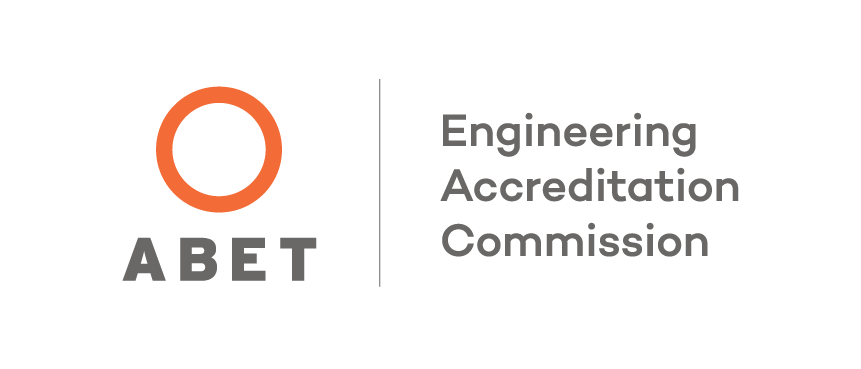
The following programs within the Wilkes University Mechanical and Electrical Engineering Department are accredited by the Engineering Accreditation Commission (EAC) of ABET external website.
Mission
The mission for engineering students is to enable the professional development of their abilities for analysis and design within the context of environment. The Wilkes view emphasizes engineering as a creative, hands-on profession with leadership responsibilities.
Teamwork, ethics and professional communications permeate the educational experience to enhance the graduate’s technical problem solving ability.
Wilkes Engineering graduates will possess the vision, confidence and will to pursue and assume increasing responsibilities in engineering and leadership throughout their careers.
Program Educational Objectives
Within a few years of graduation, graduates of the Electrical Engineering program will be able to:
PEO1
Demonstrate competency and professionalism by their successful endeavors in either industry or graduate study.
PEO2
Employ current technologies and techniques to design, develop, refine, and implement systems, products, processes, and procedures consistent with the best industry and professional practices.
PEO3
Function as a member or leader of collaborative, interdisciplinary teams and seek progressive, professional responsibilities.
PEO4
Communicate effectively recognizing the environmental, global, societal, economic and ethical issues encountered in a diverse work environment.
Student Outcomes
- Identify, formulate and solve complex engineering problems by applying principles of engineering, science and mathematics.
- Apply engineering design to produce solutions that meet specified needs with consideration of public health, safety and welfare, as well as global, cultural, social, environmental and economic factors.
- Communicate effectively with a range of audiences.
- Recognize ethical and professional responsibilities in engineering situations and make informed judgments, which must consider the impact of engineering solutions in global, economic, environmental and societal contexts.
- Function effectively on a team whose members together provide leadership, create a collaborative and inclusive environment, establish goals, plan tasks and meet objectives.
- Develop and conduct appropriate experimentation, analyze and interpret data, and use engineering judgment to draw conclusions.
- Acquire and apply new knowledge as needed, using appropriate learning strategies.
Mission
Our mission is to enable the professional development of students' abilities for analysis, design and innovation.
Our department emphasizes engineering as a creative, hands-on profession. Teamwork, ethics and communication permeate the educational experience to enhance the graduate's technical problem solving ability. Wilkes engineering graduates will possess the vision, confidence and will to pursue and assume increasing responsibilities in engineering and leadership within a global context.
Program Educational Objectives
In three to five years after graduation, Wilkes Mechanical Engineering alumni are able to:
PEO1
Demonstrate competency and professionalism by successful endeavors in either industry or graduate study.
PEO2
Apply engineering knowledge to develop solutions to technical and societal problems.
PEO3
Function as a member or leader of collaborative, interdisciplinary teams and seek progressive professional responsibilities.
PEO4
Communicate effectively and act ethically in business with clients and colleagues.
Student Outcomes
- Identify, formulate, and solve complex engineering problems by applying principles of engineering, science, and mathematics.
- Apply engineering design to produce solutions that meet specified needs with consideration of public health, safety and welfare, as well as global, cultural, social, environmental and economic factors.
- Communicate effectively with a range of audiences.
- Recognize ethical and professional responsibilities in engineering situations and make informed judgments, which must consider the impact of engineering solutions in global, economic, environmental and societal contexts.
- Function effectively on a team whose members together provide leadership, create a collaborative and inclusive environment, establish goals, plan tasks and meet objectives.
- Develop and conduct appropriate experimentation, analyze and interpret data and use engineering judgment to draw conclusions.
- Acquire and apply new knowledge as needed, using appropriate learning strategies.